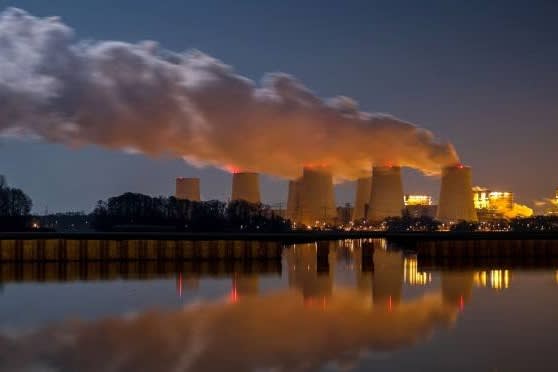Food retailers and green groups criticise ‘watered down’ UK environment bill

Deforestation updates
Sign up to myFT Daily Digest to be the first to know about Deforestation news.
The UK is set to pass an environment bill that will allow products linked to deforestation in food supply chains, dismaying both leading food companies and retailers as well as green groups.
The failure of the House of Lords to include an amendment that would widen the definitions in the bill on Wednesday means the law only addresses deforestation defined as illegal under local laws in the producing countries.
The government’s proposed legislation would fine large companies if their supply chains contained products linked to illegal deforestation.
But leading companies including McDonald’s, Tesco and Marks and Spencer had called for the government to strengthen the environmental bill, by widening the description to include all forms of deforestation and land conversion.
Rather than broadening the definition the House of Lords voted to review the law in a year’s time. The bill will now return to the House of Commons where the lower house will vote on the legislation.
“The government has effectively watered down its ambitions,” said Will Schreiber, representative of the Retail Soy Group, that represents large retailers that handle products with soyabeans in their food supply chains. While welcoming the law, he said “it’s not good enough to deal with the problem”.
The setback comes ahead of Boris Johnson’s visit to the UN in New York next week where the prime minister will co-host a world leaders’ roundtable on climate change with secretary-general António Guterres, before the UN climate summit in November in Glasgow.
With deforestation linked to global warming, the UK and the EU have been looking to ban products associated with illegally cleared land. Supermarkets and food companies, however, have said the current definition of deforestation would not stop environmental damage.
“Restricting action to illegal deforestation only would not achieve halting the loss of these natural ecosystems, especially when producing country governments have discretion to decide what is legal or have inadequate enforcement mechanisms, and local land title and clearance records can be unreliable or absent,” they said in a letter to the government.
The environment bill, which redraws Britain’s post-Brexit ecological rules, including air pollution and water quality, has been delayed repeatedly, to the consternation of campaigners. Work on the legislation began in July 2018.
Since the government announced a consultation on the measures last year, retailers and food companies have aligned themselves with environmental groups, calling for deforestation legislation proposals to be toughened.
Campaigners have been critical about the bill, pointing to countries such a Indonesia and Brazil rolling back their environmental protections, allowing legal deforestation and land use change.
The WWF has estimated that the UK bill would leave 2.1m hectares — equivalent to the area of Wales — exposed to deforestation and land conversion. Far from promoting responsible supply chains, the legislation fell “well below existing targets and practices of many UK companies” that use commodities often linked to environmental damage, it said.
On the upper house vote, Katie White, executive director of WWF’s advocacy and campaigns said: “It is deeply concerning that after a summer in which the secretary-general of the United Nations declared ‘code red for humanity’, and as the UK prepares to host world leaders at the COP26 climate conference, we still have not produced world leading legislation to protect and restore the nature that is so essential to fighting climate change.”
The Department for Environment, Food and Rural Affairs countered that it was “committed to improving the sustainability of our supply chains and protecting forests and other ecosystems”.
Climate Capital

Where climate change meets business, markets and politics. Explore the FT’s coverage here.
Are you curious about the FT’s environmental sustainability commitments? Find out more about our science-based targets here